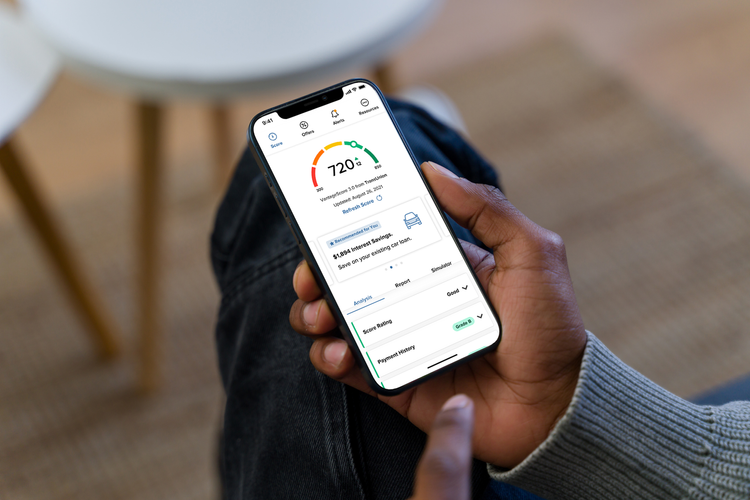Real Estate Resources
At CSE, we are People Helping People Build Financial Success and we know that purchasing a home is both a major life milestone and a major financial commitment. Because of that, we want to offer free Real Estate resources to help you navigate the home buying and mortgage application process. Don’t see the answer to your question? Feel free to reach out to one of our local CSE lenders.
Mortgage Dos and Don’ts:
Dos:
Know your financial picture.
Review your credit score, check for outstanding debts, and understand where you stand financially before starting the process.
Get prequalified early.
Being prequalified allows you to make a strong, fast offer when you find the right home.
Stay organized with documentation.
Your Real Estate Lender will need proof of income and employment (such as pay stubs, W-2s, and tax returns) along with details about your assets. Gather these documents early to avoid delays.
Record any gifted funds.
If someone gives you money to help with your purchase, keep clear documentation of where the funds came from and be ready to provide proof of the deposit.
Keep payments on track.
Continue paying your current rent or mortgage on time throughout the process.
Communicate changes quickly.
Tell your Real Estate Lender about any major updates, like a job change, pay increase, or extended travel plans, so your application stays on track.
Don’ts:
Open new credit or make large purchases.
Avoid financing a car, opening a new credit card, or making other big purchases until after closing. New debt could affect your approval.
Change jobs without consulting your lender.
A stable employment history is important. If you must change jobs, notify your Real Estate Lender right away.
Make undocumented account changes.
Large cash deposits, account closures, or transfers can create extra documentation needs. Discuss any major financial moves before making them.
Liquidate investments or retirement accounts prematurely.
Withdrawing from a 401(k) or selling investments during the loan process can create unnecessary risk and paperwork.
Navigate the process alone.
The CSE Real Estate team is here to guide you. Reach out with questions anytime.
Mortgage Glossary:
Definitions from A to C
1. Amortization
The process of paying off a loan over time through regular monthly payments. Each payment covers both interest and a portion of the principal, slowly reducing what you owe.
2. Annual Percentage Rate (APR)
The total annual cost of borrowing, expressed as a percentage. While the interest rate tells you what you’ll pay to borrow the money, the APR gives you a full picture of what the loan will cost you each year.
3. Appraisal
A professional estimate of a home's market value. It’s typically required by lenders before they approve a mortgage loan.
4. Closing Costs
Fees and expenses you pay when you finalize your mortgage—like title insurance, taxes, and lender fees. These are typically due at closing.
5. Credit Score
A number that shows how well you've handled debt in the past. It helps lenders decide if you qualify for a mortgage and what rate you’ll get.
Definitions from D to F
6. Debt-to-Income Ratio (DTI)
The percentage of your gross monthly income (before taxes) that goes towards paying monthly debt obligations. It helps lenders determine how financially stretched you are. A lower DTI means you may be better positioned to take on a mortgage
7. Down Payment
The upfront amount you pay toward the purchase of your home. It reduces the amount you need to borrow and can impact your loan terms.
8. Earnest Money
A small deposit you make when you submit an offer on a home. It shows the seller you’re serious and is typically applied to your closing costs.
9. Escrow
An account your lender sets up to hold money for things like property taxes and homeowners insurance. You pay into it monthly along with your mortgage.
10. Fixed-Rate Mortgage
A loan where your interest rate stays the same for the life of the loan—making your monthly payments more predictable.
11. Floating Rate / Adjustable-Rate Mortgage (ARM)
A mortgage with an interest rate that can change over time. It usually starts lower than a fixed rate but can increase or decrease based on the market.
Definitions from G to O
12. Home Equity
The difference between your home's market value and what you still owe on your mortgage.
13. Homeowners Insurance
Protection for your home and belongings in case of damage, theft, or certain disasters. Lenders require it to safeguard their investment—and yours.
14. Loan Estimate
A breakdown of your mortgage terms and estimated costs, provided early in the process. It helps you compare offers and avoid surprises later.
15. Loan-to-Value Ratio (LTV)
A comparison of your loan amount to your home's value. A lower LTV can lead to better loan options and may remove the need for mortgage insurance.
16. Mortgage Insurance (PMI)
Protection for the lender in case you stop making payments. It’s usually required if your down payment is less than 20%.
17. Origination Fee
A one-time charge from the lender for processing your mortgage. It’s usually a small percentage of the total loan.
Definitions from P to Z
18. Prequalification
A quick, informal estimate from a lender based on the financial information you provide. It shows sellers you're serious—and helps you house-hunt with confidence.
19. Principal
The amount of money you borrow, not including interest. Each mortgage payment reduces your principal over time.
20. Refinance
Replacing your current mortgage with a new one—usually to get a better rate, different term, or to tap into your home equity.
21. Title Insurance
Covers you and the lender if someone challenges your legal ownership of the home. It’s a one-time cost at closing.
22. Underwriting
The lender’s behind-the-scenes review of your finances to decide if you qualify for the loan—and at what terms.
23. Prepayment Penalty
A fee some lenders charge if you pay off your mortgage early. Not all loans have one, and we’ll always make sure you know upfront.
24. Points (Discount Points)
Optional fees you can pay at closing to lower your interest rate. One point usually costs 1% of your loan amount.
25. Rate Lock
A guarantee from your lender to hold your interest rate for a set time while your loan is processed—helping you avoid rate increases.
Home Buyer Tips
Know What Factors are Considered in Qualification
There are four major factors that determine if you qualify for a mortgage.
Credit
Credit history and score are the single most important factors in qualifying for a mortgage and getting the best rate available. Minimum credit scores vary by lender and loan program.
Employment
Lenders look for employment stability in borrowers. Typically, they like to see at least a 2-year consistent employment history with no gaps. The lender will verify employment.
Income
Acceptable sources of income that could be taken into account can include your job, retirement, child support/alimony, and rental income.
Assets
Your assets are also an important factor considered by lenders. This includes deposit and investment accounts and gifts from friends or family to help with the homebuying process.
Understand Your Closing Costs
Every mortgage will include closing costs. It is important to understand these as it can sometimes be an unexpected expense. Closing costs include:
Down Payments
Lender Fees
Third-party Fees
Factors to Consider When Choosing a Mortgage
Assets Available
This is the amount of money you currently have before receiving the loan. This is an important factor to consider because it will determine what you are able to pay in down payments and closing costs.
Term of the Loan
The loan term is the amount of time you have to pay off your loan. Mortgage terms may vary.
Payment Amount
This is the amount of money you will be required to pay each month. This is important to consider against your income to determine how much you can afford to borrow and what your term can be.
Understand the Different Types of Mortgages
Conventional Mortgage
A home loan with a fixed or adjustable interest rate. The down payment can be as low as 3% and the loan may require mortgage insurance.
Federal Housing Administration (FHA) Loans
This is a government-sponsored loan that is available to all qualified buyers. It is subject to maximum loan limits, and mortgage insurance is required. These loans typically have a low down payment, with the minimum being as low as 3.5%.
Veterans Affairs (VA) Loans
This loan, exclusively for veteran and active military buyers, features a fixed rate. There is no down payment and no mortgage insurance required on these loans. This loan is guaranteed by the Department of Veterans Affairs, and you must have a Certificate of Eligibility in order to qualify. A funding fee is possible.
USDA or Rural Development Loans
Rural Development loans are exclusively for qualified rural areas. There are some income restrictions; however, there is no down payment required.
About Credit Score
Your credit score and history are the most important factors for your mortgage qualification. It is determined by several factors including payment history, amounts owed, and credit history. Scores can range between 300 and 850, with 300 being the lowest and 850 being the highest. The minimum credit score for a loan is dependent on the product and the financial institution; credit scores may differ based on the type of credit report pulled.
If you don’t know your credit score or want to improve it, CSE has you covered with Credit Score powered by SavvyMoney. All CSE Members get free and convenient access to their credit report and 100s of online resources to help improve or maintain their score, all within CSE Online or the CSE MOBiLE App!



